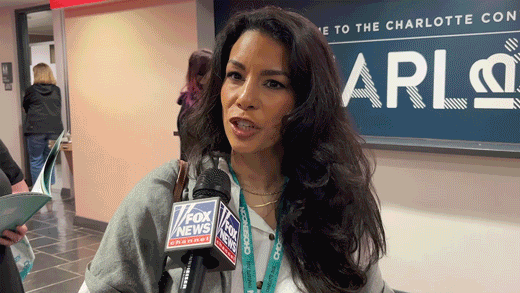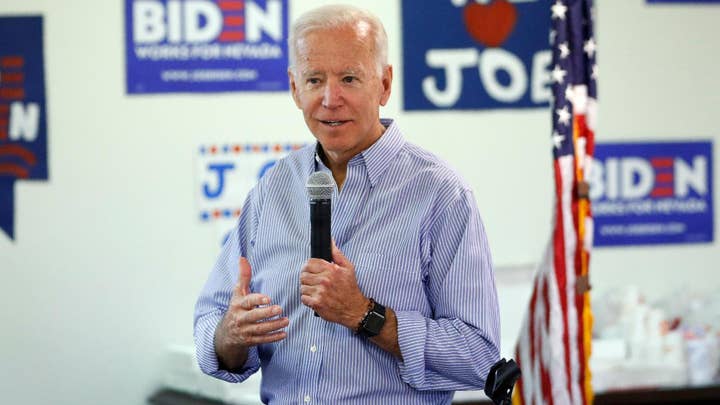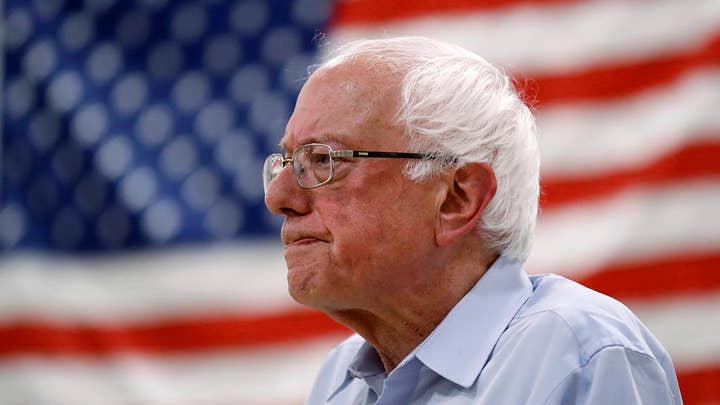Bernie Sanders loses ground as Elizabeth Warren surges in New Hampshire
New polling in New Hampshire shows Democratic presidential candidate Elizabeth Warren cutting sharply into Bernie Sanders' support from progressives; analysis from Chris Stirewalt.
Sen. Bernie Sanders, I-Vt., was seemingly at a loss for words when asked to praise his "friend," Sen. Elizabeth Warren, D-Mass., on Tuesday -- as multiple polls showed her either beating or just behind him.
During an interview with CNN's Poppy Harlow on Tuesday, the Vermont senator was asked to end the discussion on a "positive note" by naming something he admired about Warren. Instead, Sanders said he admired that the two worked together "over the years on a number of issues."
"Anything specific?" Harlow asked in response. When Sanders reiterated his previous response, Harlow laughed. He also said that Warren was a "very good senator."
The question came as the two candidates prepared to face off in a primary debate on July 30. The Sanders and Warren, both seen as progressive trailblazers, will be the two who have polled the highest among the long list of candidates debating that night.
SEN. WARREN WARNS ANOTHER ECONOMIC CRASH COULD BE AROUND THE CORNER
Those included Indiana Mayor Pete Buttigieg, former Rep. Beto O'Rourke, D-Texas, and Sen. Amy Klobuchar, D-Minn. The second debate on July 31 will feature former Vice President Joe Biden and Sen. Kamala Harris, D-Calif., another matchup that's expected to produce some fireworks.
As Sanders noted, Warren is his "friend." It's unclear what they will debate about since both share bold policy positions that have received criticism from moderates and Republicans. The debate could instead offer an opportunity to offer more clarity on differences between the two and their progressive visions.
The debate also came as Sanders faced scrutiny for his apparent hypocrisy in paying campaign staff "poverty wages."
CLICK HERE TO GET THE FOX NEWS APP
Warren faced her own scandal surrounding her decision to claim Native American ancestry on a law school registry. During a town hall event broadcast on Thrusday, a woman asked Warren how she and others could trust her given her past claim about having Native American ancestry.
Warren responded to the woman by claiming that she identified as a Native American because of things her family told her when she was younger. Citing an investigation by The Boston Globe, she claimed that her identification as Native American didn't influence her academic career.











































